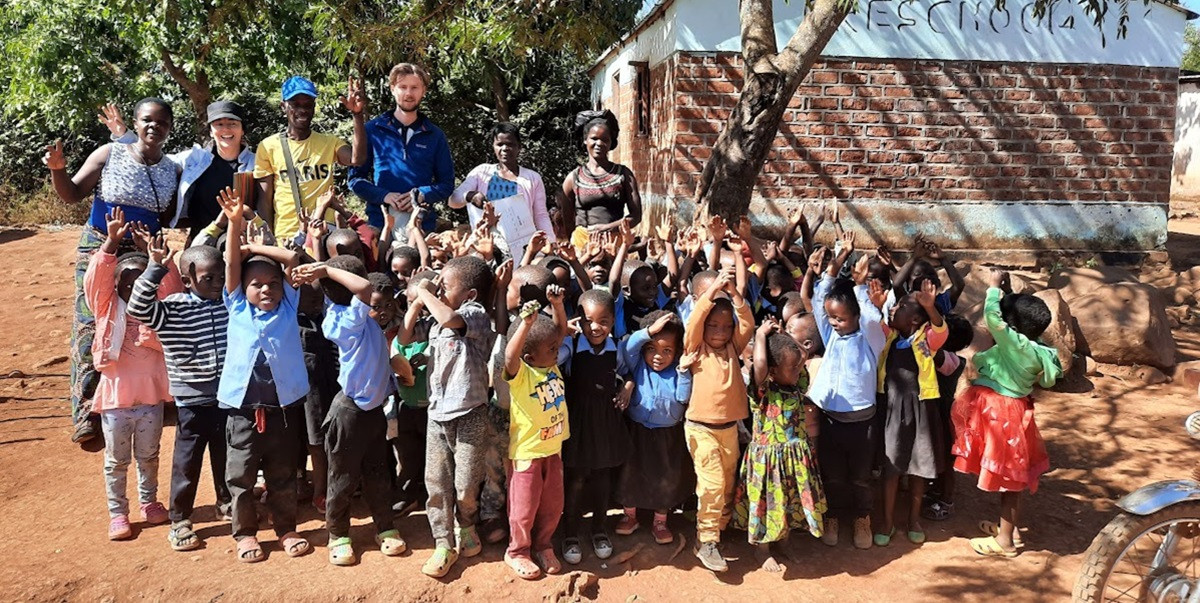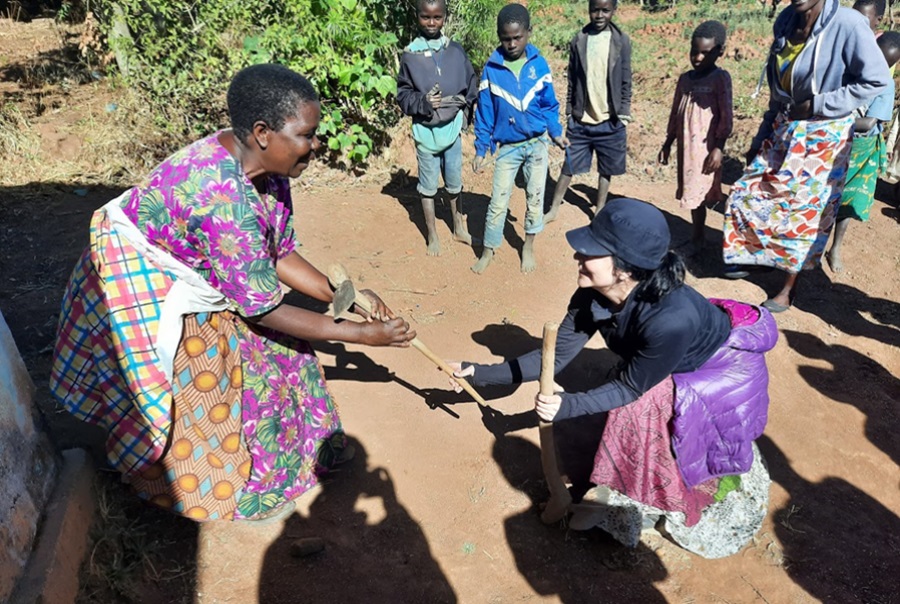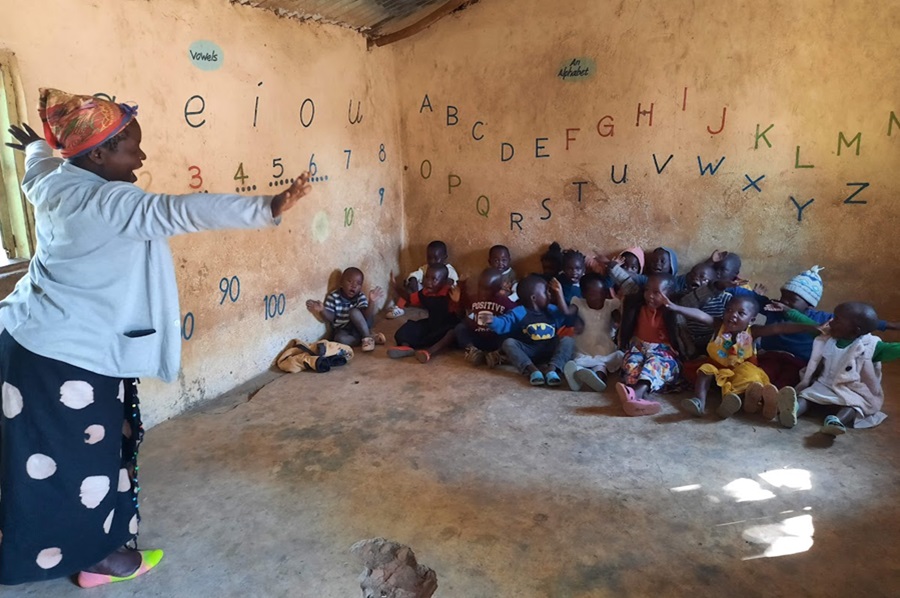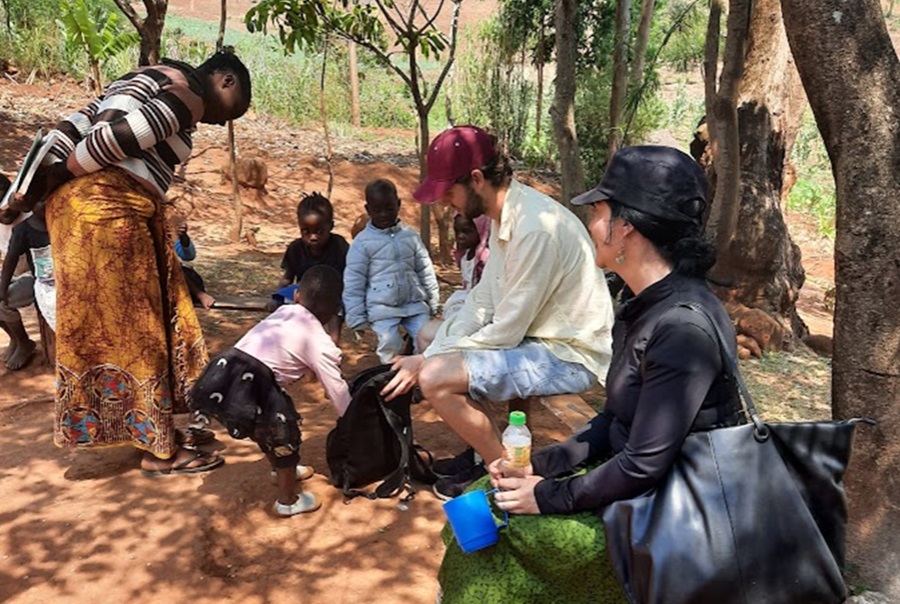Challenges I met when volunteering in Malawi
By Margarita Barbero, Development Volunteer team February 2023.
Today I want to share with you some of the challenges that I and my team encountered during the 6 months of volunteering.
My name is Margarita, part of the Fighting with the Poor team that started last February. After 3 months of preparation in England I joined the Pre-Schools supervisor team in DAPP Amalika, a teacher training college located in the southern region of Malawi; a place of warm people, exemplary communities and green surroundings of the Michuri Conservation Nature Reserve but, at the same time, full of challenges to overcome.
Water - electricity - fuel - and some good advice
Although during daylight hours we remained outside the centre where we lived, carrying out visits and community meetings, some of the greatest difficulties we encountered at the end of the day when we returned home.
Among the main ones it is worth mentioning the absence of electricity. After rain or strong winds, it was very common to find ourselves without the possibility of turning on the light, charging our equipment, boiling water, or cooking. That meant waiting for the generator to turn on for 1 hour, generally between 7 and 8 at night, if they had fuel available and it worked properly.
Additionally, the lack of electricity was part of the reason for an even greater challenge: the difficulty in accessing drinking water. We found ourselves in the situation of not being able to use the shower to shower, use the bathroom, wash clothes, clean and especially, have it available to drink. And in this case we are not talking about hours or a couple of days, but about 2 months in a row and subsequently between intermittent weeks.
The critical economic situation in the country and the corresponding lack of dollars meant that we found ourselves with periods of absence of diesel for weeks or, if it was available, it was at a very high price. This represented a challenge, since it was necessary to be able to get around to buy food, co-ordinate some visits related to the logistics of the events and motorcycle visits to remote preschools ( in case walking involved more than 10 kilometers a day.)
Thus, we can mention some recommendations to consider. In the case of electricity, it is very important that you can get a power bank with enough capacity before your trip so that you can have at least 2 charges for your cell phone. Likewise, carry at least one flashlight that can be charged with a battery.
Challenges for us - daily life for our neighbours
As for shower water, the cleanest comes from the pump. The metal water cans used for watering are usually very useful for carrying, since they distribute the weight in a better way. We also learned from our neighbours to carry the plastic containers on our heads, just as they do locally. In the case of the toilet, we used the river water due to its proximity to the house, since, although it was not clean enough to drink from, it was easy to access. And for drinking water, it is important to fill as many pots each time you return or have a couple of bottles that can be obtained on the next weekly visit to the supermarket located in the nearest large city, such as Blantyre.
The importance of good shoes and good planning
As for the mobilisation work in local communities, even more than a good pair of shoes it is the planning that is important. For this, creating a map of the locations will help optimise visits to save time and money, if it is possible to reach them on foot.
Finally, you need to have enough flexibility and a willingness to learn, especially from those who live daily what was a challenge for us - but for them is part of their daily lives.








